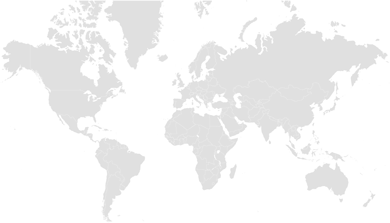Case study
2024 • Sustainable Organic Integrated Livelihoods (SOIL) SOIL: nutrient recovery from urban sanitation in Haiti
SOIL (Sustainable Organic Integrated Livelihoods) is a non-profit organization in Haiti pioneering circular sanitation solutions to address the country’s severe sanitation crisis. Established in 2006, SOIL operates EkoLakay (household container-based toilets), EkoMache (public toilets), and EkoMobil (portable toilet rentals), ensuring 100% waste treatment through thermophilic composting. The initiative has provided over 19,500 people with in-home sanitation, treated 804+ metric tons of waste annually, and produced 250+ metric tons of compost for agriculture and reforestation. SOIL’s model integrates urban sanitation, resource recovery and climate resilience, and could be a replicable solution for growing urban areas where sewered sanitation systems are not a viable or affordable option.
Recovered Materials & Products
Compost
Waste Streams
Faecal sludge
Confirmed countries
Afghanistan


Background and context
Haiti is experiencing a severe sanitation crisis, with only 30% of the population having access to improved sanitation and less than 1% of human waste being safely treated. The absence of sewer infrastructure, the high costs of traditional sanitation solutions, and the risk of flooding make pit latrines and flush toilets unfeasible for many communities. This crisis has fuelled one of the largest cholera epidemics in modern history, posing ongoing public health threats.
At the same time, while aquatic ecosystems are increasingly polluted with human waste, agricultural soils in Haiti suffer from nutrient depletion due to erosion and intensive farming. This has led to biodiversity loss, reduced agricultural productivity, and increased vulnerability to climate change.
Approach
SOIL (Sustainable Organic Integrated Livelihoods), a non-profit organization operating in Haiti, has pioneered a circular sanitation model that integrates waste containment, collection, treatment, resource recovery, and climate resilience. SOIL’s work is centered around three key sanitation services:
- EkoLakay Household Toilets – A container-based sanitation (CBS) service where households receive an in-home dry toilet, and waste is collected weekly for safe treatment.
- EkoMache Public Toilets – A public toilet block located in Cap-Haïtien’s busy central market, providing safe sanitation for vendors and visitors.
- EkoMobil Portable Toilet Rentals – A portable toilet service available for events, construction sites, and public spaces, offering a revenue-generating approach to expanding sanitation access.
SOIL ensures 100% of the collected waste is safely treated and transformed into compost through thermophilic ecological sanitation methods, closing the sanitation loop and creating valuable agricultural resources. The Konpòs Lakay compost product is sold to farmers, businesses, and organizations to support reforestation, agriculture, and climate resilience.
Outcomes and impact
SOIL’s innovative approach has led to significant environmental, public health, economic, and climate benefits, including:
- 804+ metric tons of waste treated annually
- 250+ metric tons of compost produced each year
- 2,436 metric tons of greenhouse gas (GHG) emissions mitigated annually
- 58.5 million gallons of water saved each year compared to flush toile
- 60% of leadership positions filled by women
- Prevention of untreated waste entering the environment, protecting water resources and aquatic ecosystems.
- Reduction in waterborne disease risks through improved sanitation coverage.
- Increased agricultural productivity using nutrient-rich compost.
- Improved urban sanitation, particularly in high-density, low-income communities.
- Sustainable livelihoods created, offering dignified employment with fair wages and benefits.
Lessons learned
SOIL’s success demonstrates that container-based sanitation (CBS) can be a viable and scalable solution in urban areas where traditional sewer-based sanitation is impractical. The integration of waste treatment and resource recovery ensures financial and environmental sustainability, making it an innovative model for the global sanitation sector. Community engagement is critical for adoption and long-term success. Finally, policy and regulatory support are needed to scale CBS solutions at a national level.
SOIL’s model has the potential to be replicated in other low-income, urban settings worldwide, contributing to sustainable sanitation and circular economy practices on a global scale.
Learn more
SOIL's official website
https://www.oursoil.org/
Technologies
Composting
Themes
GHG emissions
Business models
Operation and maintenance